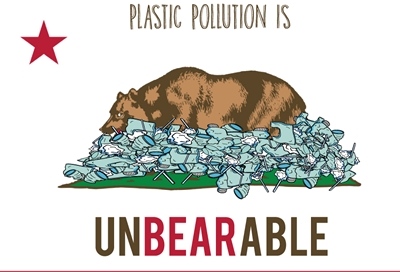Waste Business Journal (WBJ) and its content contributors
shall be not held liable for any improper or incorrect use of the information
or services on this Web site and assume no responsibility for anyone's
use of the information or services. Waste Business Journal and its content
contributors shall not be held liable for any direct or indirect damages
caused in any way through the use of information or services on this
Web site. This includes but is not limited to procurement or substitute
goods or services; loss of use, data, or profits; or business interruption.
This disclaimer of liability applies to any damages or injury which
may be perceived by you, the Web user, to be caused by the information
or services on this Web site, or by using this Web site.
Indemnification
You agree to defend, indemnify, and hold harmless Waste
Business Journal, its Web content contributors, its agencies, officials
and employees from all claims and expenses, including attorneys' fees,
arising from the use of the information or services on this Web site;
by your using this Web site; or by its use through your Internet account.
Disclaimer of Warranties/Accuracy of Data
Although an effort is made to assure the accuracy and
completeness of the information provided on WBJ's Web site, WBJ makes
no express or implied warranty as to the accuracy, adequacy, completeness,
legality, reliability or usefulness of the Web site's information. Waste
Business Journal provides this information and all online services on
an "as is" basis. While there may be changes to information
covered on the Web site, these changes may or may not be made available
on the Web site.
Many Web pages are copied and temporarily stored on other
Web servers for Web user convenience and to speed page delivery. If
you have obtained information from the WBJ Web site from a Web server
source other than the Waste Business Journal Web site host server, be
aware that Web page content or services can be altered or changed after
they are first made available on the Web. WBJ recommends that you pay
careful attention to the contents of any metadata (support data) associated
with a file, and you contact the provider of the data or information
directly with any questions about data accuracy, timeliness or completeness
before using the data.
If you find any errors or omissions, please report them
to the Web Manager for the Waste Business Journal Web site
(info@wasteinfo.com).
Disclaimer of Endorsement
Waste Business Journal is a distributor of content sometimes
supplied by third parties and other users. Any opinions, advice, statements,
services, offers, or other information or content expressed or made
available by third parties, including information providers, users,
or others, are not those of WBJ, but are those of the respective author(s)
or distributor(s). The content does not necessarily reflect the views,
policies or practices of Waste Business Journal, or its agencies, officials
or employees.
Any reference on the WBJ Web site to any specific commercial
product, process, or service by trade name, trademark, manufacturer,
or otherwise, is not an endorsement or recommendation. Any reference
shall not be used for advertising or product endorsement purposes.
Disclaimer for Hypertext Links
Waste Business Journal and its contributors are not responsible
for the contents of any off-site pages linked from the WBJ Web site.
As a user of the WBJ Web site, you specifically acknowledge that Waste
Business Journal and its contributors are not liable for any defamatory,
offensive, or illegal conduct of other users, links, or third parties
and that the risk of injury from all off-site content mentioned here
rests entirely with you, the Web site user.
Links from the WBJ Web site to other sites do not constitute
an endorsement from Waste Business Journal. These links are provided
as a convenience for WBJ Web site users and as an information service
only. As a Web user, it is your responsibility to determine the content
and usefulness of information you find on other sites.
Disclaimer of Duty to Continue Providing Data
Due to the rapidly changing nature of the World Wide Web
and the Internet, online resources that are free and publicly available
one day may require a fee or have restricted user access the next. In
addition, the location of information, services or Web pages may change
as menus, home pages, and files are updated or reorganized. You expressly
agree that use of the WBJ Web site is at your sole risk. Neither Waste
Business Journal, its content providers, agencies, officials or employees
guarantee that the service will be uninterrupted or error-free.
Choice of Law
Information in this disclaimer is governed by the laws
of the State of California. Any dispute arising from the use of information
or services provided on the WBJ Web site will be governed by the laws
of the State of California.
